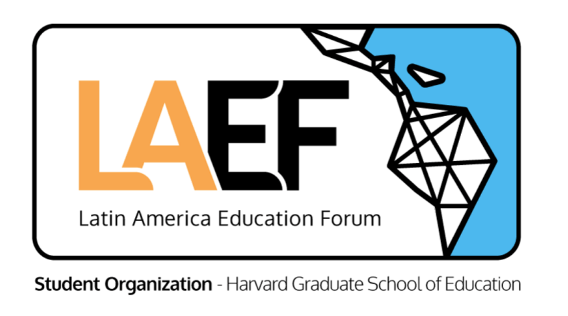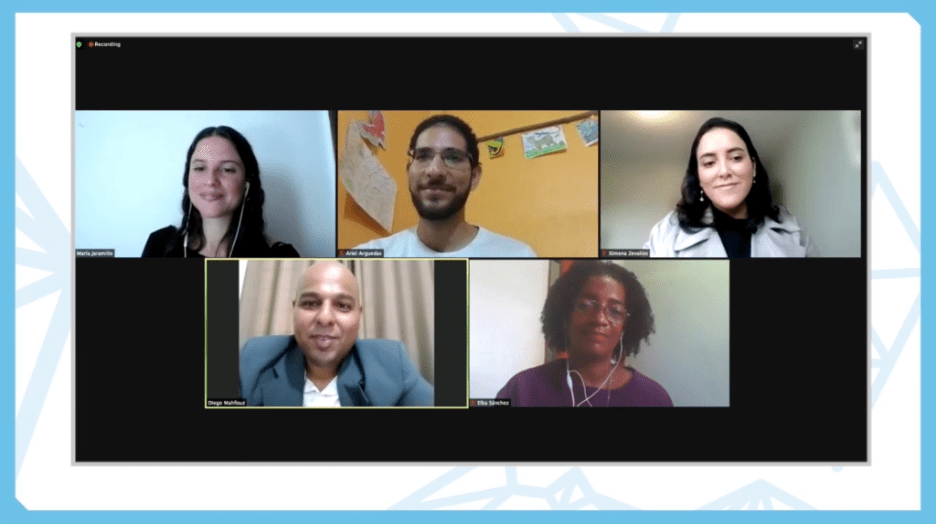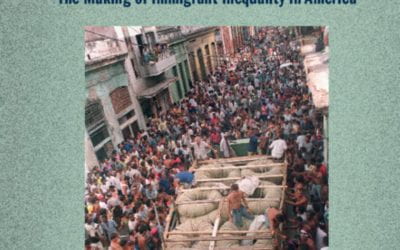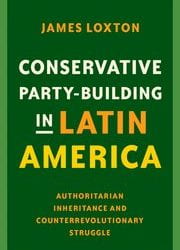Disruption and Creation in Education
Educando con Amor
These past years have been like no other time in our recent history. We have learned to come together, to collaborate and to adapt. The 2021 Latin American Education Forum (LAEF) did just that. LAEF is a student organization at Harvard’s Graduate School of Education composed of students who are passionate about education in Latin America and committed to work to improve its future. We organized a regional event to bring attention to these new challenges and to share innovative solutions that have been implemented.
When we began to plan this year’s event, we wanted to follow in the footsteps of our colleagues, LAEF HGSE Alumni, who have planned fruitful events in person in years past. However, we knew this year had to be different. We saw an opportunity to completely change the format, scope and experience of the event. LAEF 2021 transformed into a three-day event in which teachers, students, policymakers, school directors, researchers and entrepreneurs came together to work for the betterment of education in Latin America, especially during the global Covid-19 pandemic. The first two days alone connected more than 600 people from around the world, from 27 different countries, sharing their diverse perspectives and experiences in education in Latin America.

By collaborating with foundations, private companies, NGOs and government officials, we were able to bring distinct stakeholders to the same table—a situation that does not frequently occur. Teachers, policy-makers, leaders, researchers, students from all over the Latin American region gathered virtually on June 1, 2 and 3 to discuss Covid-19 and its impact on education in Latin America. The event included round tables, panels, keynote speakers, videos from the field and a creative design workshop. Because of the profound impact of Covid-19 on the educational systems in the region at all levels, we felt the urgent need to respond to the needs of this crisis and highlight areas of opportunity. Latin America has been the region most affected by the global pandemic in regards to school closings. The prolonged closure of educational institutions, the adoption of new roles from members of the educational community, and the multiple initiatives that have emerged to reduce its impact on learning have influenced our effort to bring together multiple voices to talk about education in Latin America. Therefore, the event had the following objectives:
- Confront the stark reality of this crisis with an emerging sense of hope coming from students, educators, families, decision-makers, and social leaders,
- Attract voices, stories, and innovations that need to be heard,
- Share best practices that have started to reduce the risks that the pandemic has brought, and
- Build collaboratively a multidisciplinary network to create solutions that contribute to redesigning the future of education in Latin America.
While Covid-19 has presented serious global challenges, it has also provided us with new opportunities to connect and share experiences with people with whom we may not have been able to connect with before. Therefore, LAEF 2021 brought new voices to the table to provide a platform for educational experts from around the region to share their experiences with our broad audience. Based on the notion that our impact can be greater if we work as a team, the virtual platform sought to create an inclusive environment where teachers, students, researchers, policy-makers and Ministers of Education share a space of open dialogue through their expertise to create improved educational offerings in the region.
“Untold Stories in Latin America: Disruption and Co-creation in Education During Covid-19” was the title of this year’s event. The capability to increase the access of the event to underrepresented voices in these types of conversations was at the forefront of our mission when designing this event. By attracting diversity of opinions and fostering inclusion in the event’s participants and presenters, LAEF 2021 was able to make an impact that transcends the boundaries of Harvard University through working together as a team to create a better education system. While the first day focused on disruption in education during COVID-19, such as innovative strategies, best practices, and lessons learned from teachers, the second day focused on co-creation, emphasizing the way different actors worked together to respond effectively to the pandemic.
Taking advantage of the opportunities that technology provides to us, educators from rural areas in the jungle and mountains of Peru shared their experiences in a “Best Practices Showcase.” They shared the strategies that they created and implemented in order to deal with the challenges that their schools face in their specific contexts.
For example, Profesor Richard Raúl Alcántara Reyes from Cajamarca, Peru shared that many of his school’s students lived a few hours away from the school and had limited phone capabilities and internet signal, and therefore were not able to access the remote Aprendo en Casa learning. In order to reach the students, the teachers and director found an alternative and began to use multi-conference calls in order to assure communication with the students. In this way, the teacher could have group meetings with all the students in the grade at the same time in order to provide emotional and academic support to ensure that students were able to continue their education.
Profesor José Ronald Correa Larrea from the Amazonas region of Peru utilized a network of schools in order to transform the radio materials into physical (paper) materials adapted to reach the students from the different schools. The school teachers and director in the network collaborated with local authorities, parent associations, alumni, community leaders and the school feeding program in order to make sure that the educational materials reached the students living in isolated areas. Building on the Incan tradition of using Chasquis as messengers, this strategy was organized based on shared leadership and collaborative work between teachers and with communities, families and local alliances. Teachers were able to provide emotional support to students and academic feedback in order to avoid student dropout and ensure that students met their learning goals.

In the session, Lo Que Las y Los Docentes Han Aprendido, educators told about their experiences teaching during Covid-19 and some of their most important takeaways. One theme that stood out in particular was about the importance of community-building. The teachers who shared their experience stressed that education isn’t just about the teachers and their students inside the four walls of the classroom. Administrators, families, gardeners and everyone within society itself have a role to play in a student’s learning and understanding of the world.
Elba Sánchez, an educator and organizer in Colombia, found that the Covid-19 pandemic provided a special opportunity to bring teachers, students, and families together in a shared goal. Sánchez is part of a team working to create an educational model called Champalanca Pedagógica. Champalanca aims to strengthen education communities from within, and because of the unprecendeted challenges of the pandemic, an important part of the program was brought to life through a universal call to action among all members of the learning community. She said there was an “avalanche” of content, materials, and curricular redesigns created by teachers that resulted in six core interdisciplinary areas of learning resources. Since many families with two or more children were receiving different learning guides, the core themes that Champalanca created served as a more helpful resource for learning at home. Sánchez reflected on how this effort brought teachers together, collaborating in teams, and finding ways to connect and communicate with students and families to reach Champalanca’s goal of strengthening learning communities from within.
Ariel Arguedas, who organizes educational programs in Mexico, reflected on his own personal experience as an educator during the Covid-19 pandemic. When asked how he would tell his story of the pandemic in the future, he said that despite the challenges of shock and fear, there is one word he wrote down every day in his journal as his intention in 2020: valentía, courage. Why? Despite the challenges of living and working in a rural community, residents came together. For example, community members organized a food pantry for the people most in need, and teachers learned how to be creative and adapt to new ways of teaching. He shared a reminder for all of us as we enter the second half of 2021: soñar. After seeing the people in his community taking on the challenges of the pandemic with courage, he emphasized that it’s also important to dream about what we can do together.

Another educator, Diego Mafhouz, also spoke about the importance of dreaming and imagination to inspire better work culture among students after the pandemic. He organized a project called El Árbol de los Sueños with his school community, reassuring students that their dreams are possible and teaching important values necessary to achieve those dreams. For example, students learned how they can put conflict resolution, active listening and open dialogue to practice in their communities.
One of the most significant takeaways for Ximena Zevallos, an educator in Peru during the pandemic, was what she called maestros honestos. She explained that while students look to their teachers as “superheroes” who have the answers to many things, Covid created a shift in her role as a teacher—from being a “superhero” to being “human.” She would say to her students, “I’m scared” or “I don’t know what’s going to happen,” and told them that it’s okay to be scared together, and not know what’s going to happen together. Her openness with her students not only showed her humanity, but also modeled what it’s like to be vulnerable, which can be one of the most meaningful ways to build strong relationships and community with students.

The 2021 program closed with a creative session—an intimate conversation between teachers, school leaders and other educational actors in the region with the goal of reimagining new ways forward for education in Latin America. This space was used to define and refine our collective commitment to education, as well as reexamine and reimagine what roles we can play, and strategies we can use, to improve education systems for all students in Latin America. More than 60 participants, representing nearly every country in Latin America, and several outside of the region, participated in a conversation on the current challenges that education systems across Latin America face, on creative ways to solve these challenges, and crucially, on whose voices should be helping to solve these challenges.
Participants were split up into small groups and were asked to first list the challenges they felt needed to be solved in the Latin American context. Using this comprehensive list from each group, everyone was then tasked with categorizing the challenges. From these categories, participants voted on what they felt was the single-most pressing issue that should be addressed. The most-voted on challenge was that of new roles for students, teachers, and parents in a system greatly impacted by Covid-19. Parents were now expected to be teachers, teachers were expected to support students despite being physically apart from them, and students no longer had the support systems of their friends and teachers. The other key challenges that emerged from this conversation were structural issues, a lack of communication across sectors and stakeholders, the future of learning in a hybrid environment, self-care and mental health, informal education, early childhood education, professional development and leadership.
With these challenges named, participants were then tasked with coming up with ways to solve these challenges given ideal conditions (such as no budget constraints). A multitude of ideas emerged. To fix structural problems, participants suggested creating systems that were designed to support students for their entire life (“from cradle to career”) and giving municipal actors more control of their local education systems. To ensure all voices are heard, collaboration should take place not just between leaders of systems, but between all parts of the community, they concluded. As roles shift within the landscape of Covid-19, education systems should look to teachers to lead the evolution of their roles, for example.
We did not expect to solve these immense challenges within our two-hour session. What we hoped to do was create a space for increased collaboration between professionals, sectors and countries to ensure that the future of education in Latin America is inclusive and supportive for all students. The Latin American Education Forum at the Harvard Graduate School of Education hopes to continue the conversation by hosting specialized sessions on these topics throughout the upcoming academic year. These workshops will give educators a chance to build on their ideas and the opportunity and time to enact change within their own communities. If being a part of these conversations is of interest to you, find LAEF on the Hub! And if you would like to relive the first two days of the conference, check out the recordings from each session here!
So many amazing people and organizations were involved in bringing this conference to fruition —thank you to each and every person who made this conference such a success. ¡Juntos logramos más!
Kristen Hinckley worked as a Kindergarten teacher in Peru and then as an education policy researcher for the Peruvian Ministry of Education implementing a national study on early childhood education. She is a current Master’s student in International Education Policy at the Harvard Graduate School of Education and can be reached at kristenhinckley@gse.harvard.edu.
Adriana Cortez is a Master’s student at the Harvard Graduate School of Education, where she is studying curriculum development and International Education Policy. She previously worked as an elementary special education teacher and dual language teacher in New York City. She can be reached at adrianacortez@gse.harvard.edu.
Charley Kenyon holds an Ed.M. from Harvard Graduate School of Education, where he graduated as part of the International Education Policy program. He was a Fulbright Scholar in Argentina and has taught history in the United States. He is passionate about sci-fi, hiking, and all things fútbol. He is currently a Teaching Fellow at HGSE and can be reached at charleykenyon@gse.harvard.edu.
Related Articles
A Review of Cuban Privilege: the Making of Immigrant Inequality in America by Susan Eckstein
If anyone had any doubts that Cubans were treated exceptionally well by the United States immigration and welfare authorities, relative to other immigrant groups and even relative to …
A Review of Conservative Party-Building in Latin America: Authoritarian Inheritance and Counterrevolutionary Struggle
James Loxton’s Conservative Party-Building in Latin America: Authoritarian Inheritance and Counterrevolutionary Struggle makes very important, original contributions to the study of…
Endnote – Eyes on COVID-19
Endnote A Continuing SagaIt’s not over yet. Covid (we’ll drop the -19 going forward) is still causing deaths and serious illness in Latin America and the Caribbean, as elsewhere. One out of every four Covid deaths in the world has taken place in Latin America,...



